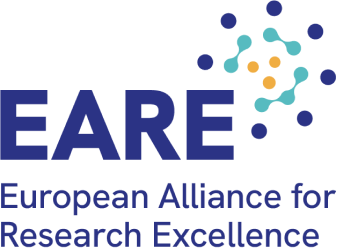Hong Kong’s government opens a consultation for a new copyright exception for text and data mining to encourage the development of AI
On 8 July, Hong Kong’s government opened a public consultation on a white paper entitled “Copyright and Artificial Intelligence” proposing the introduction of a new copyright exception for text and data mining activities, in both commercial and non-commercial contexts.
Hong Kong’s consultation is open until 8 September 2024 and seeks views on the proposed exception, as well as the appropriate conditions to the exception, including practical difficulties in compliance with these conditions.
Current state of play of Hong Kong’s copyright law
The current Hong Kong’s law, the Copyright Ordinance, contains a number of copyright exceptions that permit reasonable use of copyright works under specific circumstances. Each exception is confined to certain special situations such as the use of copyright works for the purposes of research, and under specific conditions. However, Hong Kong has no specific copyright exception for the purposes of computational data analysis and processing.
According to Hong Kong’s government, atext and data mining exception would increase the accessibility of copyright works for AI developers and users with the aim to developing and training their AI systems. Similarly, this copyright exception will facilitate the work of researchers to advance their own studies, and discover new patterns, and trends. This will boost the development of AI industry and Hong Kong’s competitiveness worldwide.
Hong Kong’s government also notes that the proposed text and data mining exception should not be restricted to non-commercial research and study, and it can be used to develop AI models for commercial uses, conduct business analytics, and research and development projects that may be privately funded.
Copyright Protection for AI-Generated Work
The white paper suggests that Hong Kong’s current copyright legislation, which allows for copyright protection of work produced by a computer, or with the assistance of one, is sufficient to protect AI-generated works. The government also proposes that copyright ownership for AI-generated work can be solved contractually. The consultation invites views on whether the current framework needs improvement.
Safeguards for copyright owners
In the consultation paper, the government also considers that some safeguards should be in place to reassure copyright owners that adequate safeguards are in place regarding the text and data mining exception. Some of the safeguards proposed are:
- Requiring lawful access to the copyrighted work.
- Rendering activities unauthorised if licensing schemes are available or express reservation of rights (or opt out) has been made.
- Restricting further dealing of the copy made under the exception.
- Other conditions such as sufficient acknowledgment, secured storage, retention for limited purposes, and destruction after certain period upon request.
Copyright by AI output
Regarding copyright infringement of AI outputs and liability, the government also believes that existing copyright law is sufficient to deal with these issues. The consultation seeks feedback on whether rigid rules assigning infringement liability to specific persons could lead to unfair outcomes and how current laws could better address liability issues from AI generated works.
EARE welcomes this new proposal for a TDM exception
The new Hong Kong’s proposal for a copyright exception for text and data mining represents a mix of the EU, Japan, and Singapore approaches, which allow exceptions for text and data mining activities for both commercial and non-commercial uses. This contrasts with the UK jurisdiction, which limits the copyright exception for text and data mining to non-commercial research.
The European Alliance for Research Excellence (EARE) believes that the proposed TDM exception is a positive step toward tackling the IP risks and challenges that businesses encounter when developing and integrating AI solutions into their operations and services. As pointed out by Hong Kong’s proposal, the introduction of a text and data mining exception will boost significantly research, innovation and AI development in Hong Kong. The introduction of safeguards for copyright owners for this text and data mining exception should be carefully balanced and discussed with all stakeholders, including research organizations, librarians, start-ups and business organizations, with the aim to avoid obstacles to research excellence and innovation. For this reason, EARE invites all research organizations, start-ups, and librarians in Hong Kong and worldwide to provide their inputs and views on this new proposed exception.
EARE has successfully advocated for similar exceptions in Europe and is confident that Hong Kong’s consultation will lead to advance research excellence, and innovation with this new proposed text and data mining exception.
Hong Kong’s consultation also reflects a growing trend among countries to prioritise securing access to high quality data for advancing AI development. This is also a cautionary signal for Europe, which must above all not back down on these issues, but instead, ensure widespread access to high-quality data. While a more open approach based on the principle that “the right to read is the right to mine” would have been an ideal scenario, we believe that the current legislation in Europe gives rights holders the ability to participate in AI in a manner that reflects their preferences. Nonetheless, opt outs mechanisms pose serious challenges for AI development as they limit the diversity of datasets on which are trained AI algorithms and consequently hamper innovation and introduce biases in AI models. The need to respect opt-outs adds complexity to data management, regulatory compliance and increase compliance costs.
EARE urges global policymakers in other jurisdictions to recognize the transformative potential of the text and data mining exception in driving research excellence and innovation. Our organization also hopes that other governments will follow the steps of governments such as Hong Kong to foster a dynamic and innovative research environment worldwide.


